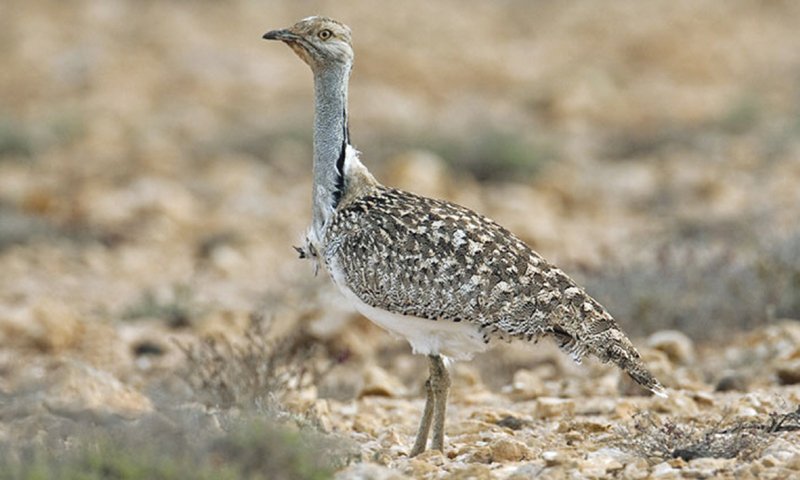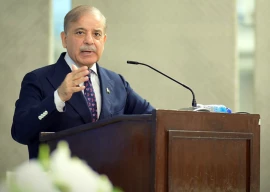
The ban on hunting the vulnerable houbara bustard could cast a shadow over relations between Pakistan and some Middle East states, the government told the top court on Saturday.
Additional Attorney General (AAG) Chaudhry Abdul Rehman filed a review petition against the Supreme Court’s August 19 ruling, which barred the federal and provincial governments from granting permits for hunting the indigenous bird and reminded them that the country’s laws were not a ‘saleable commodity’.
Read: SC imposes ban on houbara bustard hunting
The government’s review petition stated that before issuing its verdict, the apex court had not considered Pakistan’s relations with Middle Eastern countries in the backdrop of the Yemen crisis. “Since Pakistan has decided to remain neutral in view of the National Assembly’s April 10 resolution, the decision has adversely affected the country’s diplomatic ties with the Middle Eastern countries. The ban on falconry hunting of houbara bustard could further affect the already weakened relations.”
The review petition said that falconry is not merely a sport for the Arabs, as it is their most cherished custom. “Unesco recognises it as cultural heritage of Saudi Arabia, the UAE and Qatar. Therefore, allowing Arab dignitaries to hunt would be pivotal in restoring Pakistan’s deteriorating ties with their respective countries.”
The AAG argued that the issue pertained to external affairs and that the superior courts had always deferred to the judgment of the executive in such matters. “Ties with the Middle East have a direct impact on the livelihood of millions of expat Pakistanis living and working in the region.”
Read: Houbara bustard: Balochistan seeks to legalise hunting of migratory bird
The petition also said that foreign dignitaries bring in considerable funds, which are used exclusively for the uplift of the people living in the hunting areas.
The government pointed out that houbara bustard is not listed as an ‘endangered species’, as it is categorised as a ‘vulnerable species’. “Being vulnerable and being endangered are two different things, which entail different obligations to conserve the species accordingly.”
The AAG said that the use of biodiversity is well recognised throughout the world for the economic benefit and social well-being of societies. “The right to enjoy life with abundant wildlife species is, therefore, directly proportional to the well-being of the people living in close proximity to the species, and they cannot be denied its benefits.”
Read: Houbara bustard: K-P govt refuses hunting permits to royalty
The government claimed that due to the efforts of the Houbara Foundation International in Pakistan, the population of houbara bustard has been stabilised.
The petition argued that the court had failed to appropriate the true spirit and scope of the international treaties, and requested the court to hear the matter anew.
Published in The Express Tribune, October 18th, 2015.










1731929357-0/Express-Tribune-(6)1731929357-0-270x192.webp)






COMMENTS (21)
Comments are moderated and generally will be posted if they are on-topic and not abusive.
For more information, please see our Comments FAQ